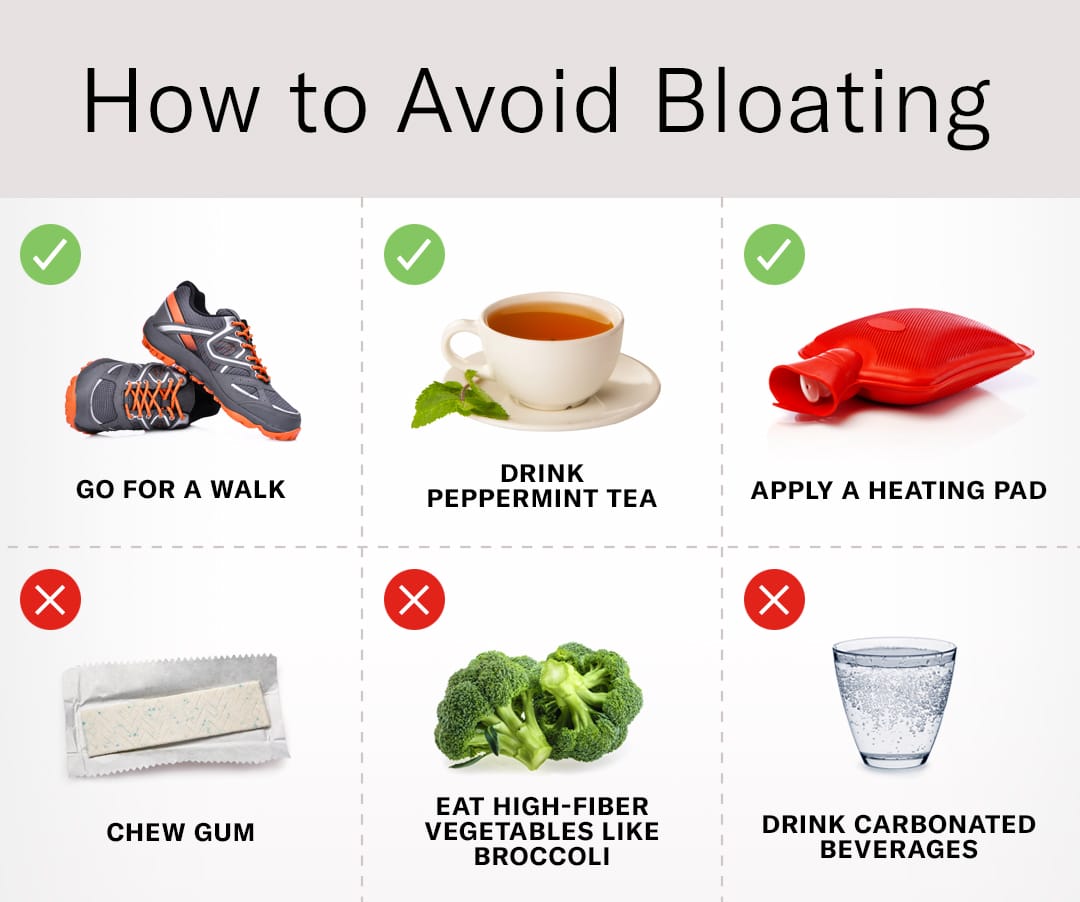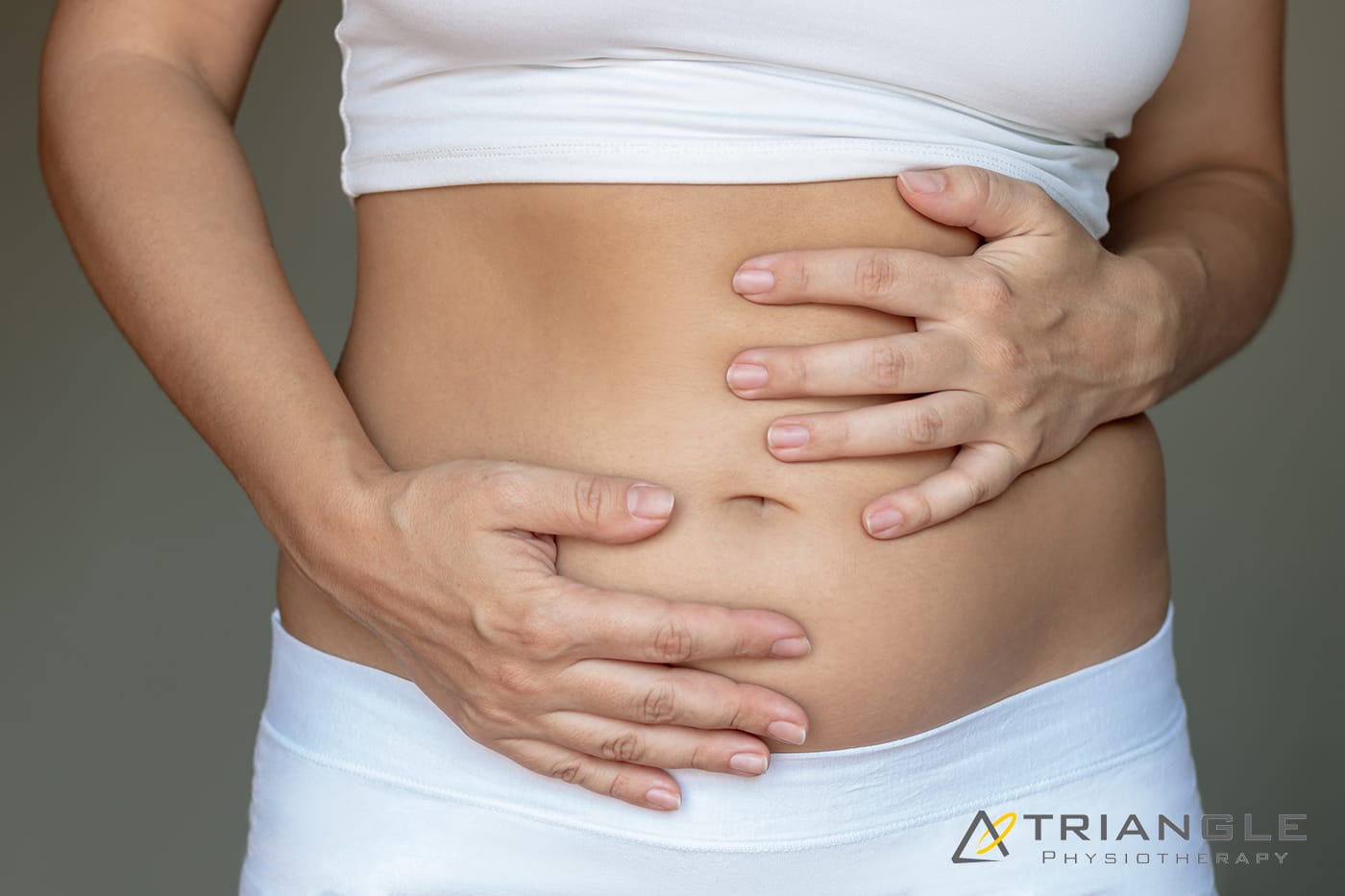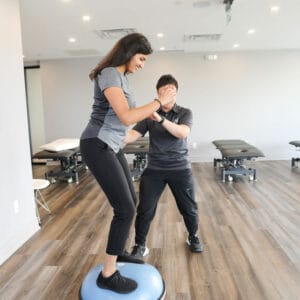Bloating is a common issue that many of us experience at one point or another. Whether it’s caused by a heavy meal, certain foods, or even stress, feeling bloated can be uncomfortable and frustrating. The good news is that there are plenty of ways to relieve bloating and get back to feeling like yourself.
If you are feeling bloated, the Naturopaths and Acupuncturists at Triangle Physiotherapy are able to assess and find the root cause of your bloating.
In this blog, we’ll share 7 practical tips that can help reduce bloating and improve your digestive health.

1. Watch What You Eat
Certain foods are known to cause bloating, especially those that are difficult to digest or contain high levels of fiber. While fiber is important for your health, some foods, like beans, lentils, cruciferous vegetables (like broccoli and cauliflower), and dairy, can cause gas and bloating, especially if you’re not used to eating them in large amounts.
- Tip: Try keeping a food journal to track which foods may be causing bloating and experiment with cutting them out for a while. If dairy is an issue, consider switching to lactose-free or plant-based alternatives.
2. Stay Hydrated
It might sound counterintuitive, but drinking more water can actually help reduce bloating. When your body is dehydrated, it can hold on to excess water, leading to that uncomfortable, swollen feeling. Staying hydrated helps to keep your digestive system moving and can prevent water retention.
- Tip: Aim for about 8 glasses of water a day, or more if you’re active. Adding a squeeze of lemon or cucumber can make it more refreshing.
3. Eat Smaller, More Frequent Meals
Large meals can overwhelm your digestive system, leading to bloating and indigestion. Instead of eating three big meals a day, try splitting your meals into smaller, more frequent servings. This helps to regulate your digestive process and prevents excessive bloating after eating.
- Tip: Opt for 4–6 smaller meals throughout the day, and try to eat slowly to give your body time to digest properly.
4. Move Around After Eating
It’s tempting to slump on the couch after a large meal, but sitting still can actually make bloating worse. Moving around gently after eating helps stimulate your digestive system and can ease any discomfort.
- Tip: Go for a short walk after meals to help with digestion. Even a few minutes of movement can do wonders for reducing bloating.
5. Try Probiotics
Probiotics are beneficial bacteria that can help balance the gut microbiome and improve digestion. If your bloating is due to an imbalance of gut bacteria, taking a probiotic supplement or eating probiotic-rich foods like yogurt, kefir, sauerkraut, or kimchi might help ease the symptoms.
- Tip: Start with a mild probiotic and gradually increase your intake to avoid gas or discomfort. Be patient—it can take a few days or even weeks for probiotics to have their full effect.
6. Avoid Carbonated Drinks
The bubbles in carbonated drinks, including soda, sparkling water, and beer, can cause gas to build up in your stomach, leading to bloating. While it’s tempting to grab a fizzy drink, the air trapped in the bubbles can make you feel swollen and uncomfortable.
- Tip: Opt for still water or herbal teas instead. Ginger or peppermint tea can be particularly helpful in soothing your digestive system.
7. Mind Your Stress Levels
Believe it or not, stress can contribute to bloating. When you’re stressed, your body releases hormones that can slow down digestion and cause bloating. Practicing relaxation techniques like deep breathing, meditation, or yoga can help reduce stress and alleviate bloating.
- Tip: Try setting aside time each day for a short relaxation practice, even if it’s just 5–10 minutes of mindful breathing or stretching.
FAQs About Bloating
Q: Can I prevent bloating altogether?
While it’s not always possible to completely prevent bloating, you can reduce the frequency and severity by paying attention to your diet, staying hydrated, and managing stress. If you consistently experience bloating, it might be a good idea to consult with a healthcare professional to rule out underlying conditions like food intolerances or gastrointestinal disorders.
Q: Is bloating a sign of a serious health problem?
In most cases, bloating is a normal part of digestion and isn’t a cause for concern. However, if bloating is persistent, painful, or accompanied by other symptoms like significant weight loss, diarrhea, or vomiting, it could indicate an underlying health condition such as IBS (Irritable Bowel Syndrome), celiac disease, or a digestive disorder. It’s best to seek medical advice if you’re worried.
Q: What can I do if I feel bloated after every meal?
If bloating occurs after every meal, it could be related to how you’re eating, what you’re eating, or how your body is processing food. Try eating smaller meals, chewing your food thoroughly, and avoiding foods that cause gas. If the issue persists, consider keeping a food diary and discussing it with a healthcare provider or dietitian.
Q: Are there any natural remedies for bloating?

Yes! Several natural remedies may help relieve bloating, including:
- Ginger: Known for its digestive properties, ginger can help soothe the stomach.
- Peppermint tea: Helps to relax the digestive muscles and reduce bloating.
- Fennel seeds: Can help reduce gas and bloating when chewed or steeped in hot water.
Bloating is an issue that the Naturopaths and Acupuncturists at Triangle Physiotherapy can help you with. Book an appointment today!



